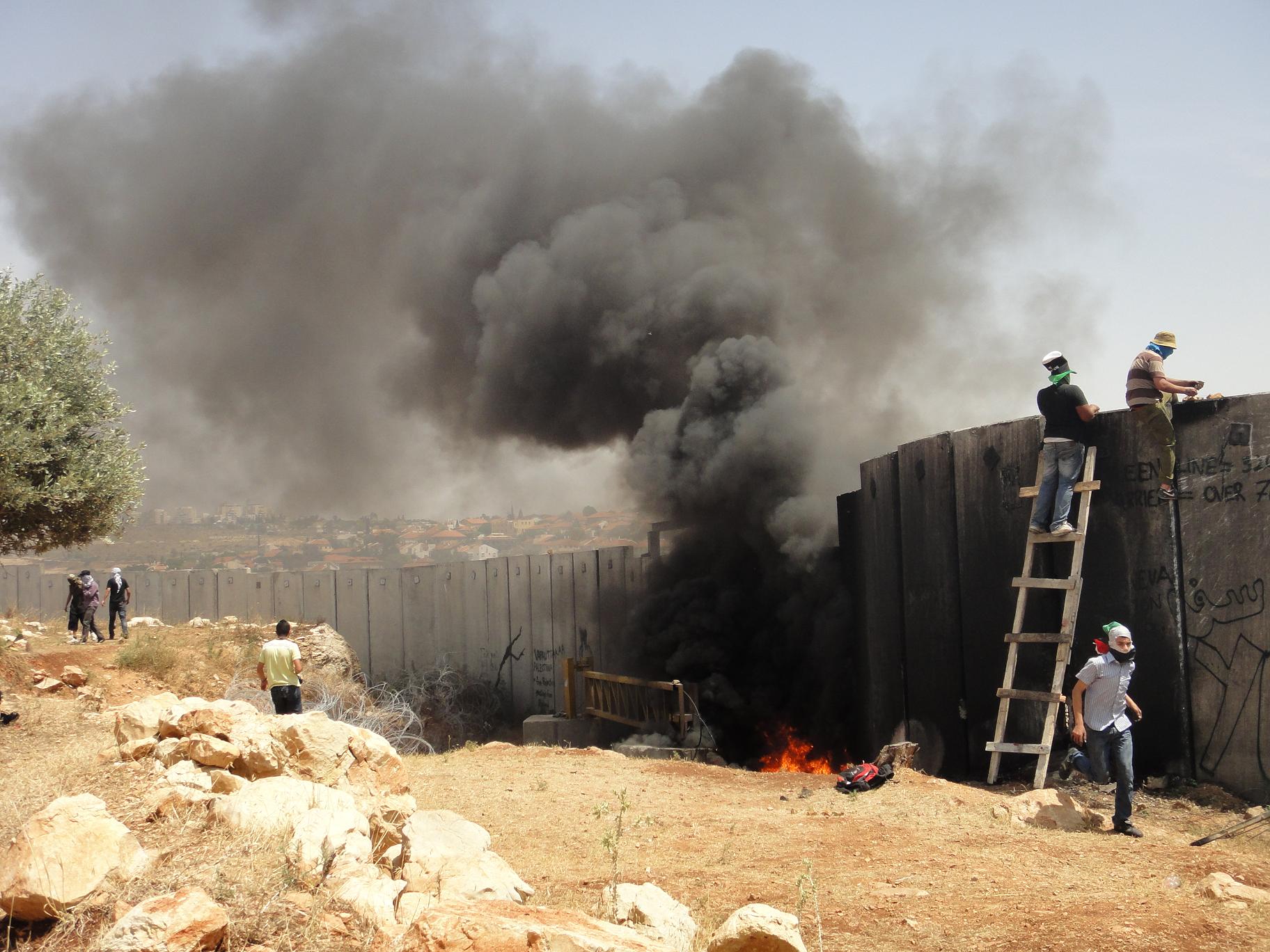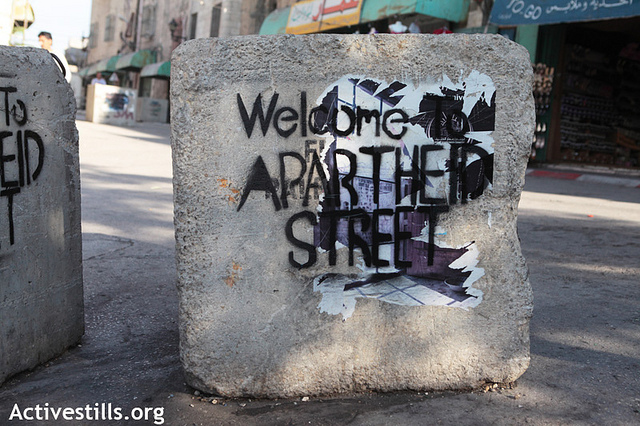-
Photo essay: Gas, frisbees and the Apartheid Wall in Ni’lin
24th May 2013 | International Solidarity Movement, Team Nablus | Ni’lin, Occupied Palestine Friday demonstrations continue in the village of Ni’lin in protest against the Occupation and Apartheid Wall which runs through the village’s land. Background on the effects of the Occupation in Ni’lin is here. During this particular demonstration on the 24th May 2013, […]
-
Jamila Shalaldeh, accused of assaulting 13 soldiers found innocent by Ofer Military Court
23th May 2013 | International Solidarity Movement, Team Khalil, Hebron, Occupied Palestine On Tuesday 21st May, Jamila Shalaldeh was found innocent by Ofer Military Court of assaulting 13 soldiers. Jamila and her son Abdel were visibly nervous before her trial. Fortunately, the Israeli military judge agreed with Jamila and her family that the charges against […]
-
“No-one can explain to me why”
22 May 2012 | International Solidarity Movement, Nablus Team | Kafr Qalil, Occupied Palestine The Israeli army invaded seven family homes in the village of Kafr Qalil, south of Nablus, between 1am and 2am on 20th May. They trashed the properties and people’s possessions and stayed in them for several hours apiece. Lastly, they arrested […]
Action Alert An Nabi Saleh Apartheid Wall Arrests BDS Bethlehem Bil'in Cast Lead Demonstration Denial of Entry Ethnic Cleansing Farmers Gaza Global Actions Hebron House Demolition International law Israeli Army Jerusalem Live Ammunition Nablus Ni'lin Prisoner Ramallah Rubber-coated steel bullets Settlement Settlers Settler violence Tear-Gas Canister Video


